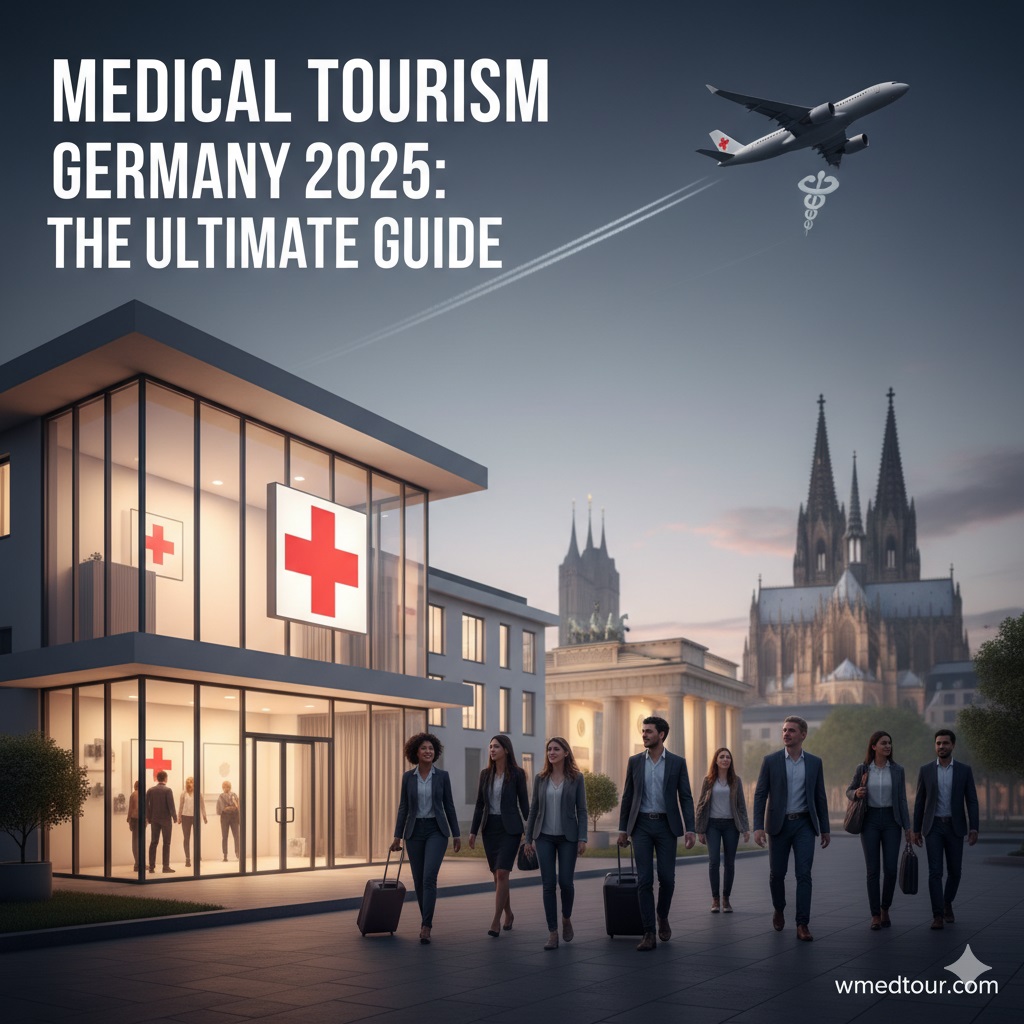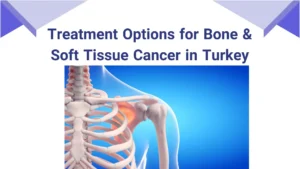✈️ Medical Tourism Germany 2025: The Ultimate Guide to World-Class Healthcare
Your definitive handbook for navigating German healthcare excellence, costs, and clinical precision in the coming year.
📄 Executive Summary: Key Takeaways
Germany remains a global benchmark for medical care, especially in complex fields like **oncology** and advanced **orthopedic surgery**. Consequently, costs are notably higher than in emerging medical tourism hubs. This guide confirms that choosing **Medical Tourism Germany 2025** is primarily a decision for **uncompromising quality and safety** over pure cost savings. The German system’s mandatory quality reporting, stringent research-to-clinic pipeline, and high physician specialization ensure unparalleled clinical outcomes. We break down the top fields, compare costs with international options, and chart the essential patient journey to prepare you for this investment in superior health.
🛡️ The Pillars of Medical Tourism Germany 2025: Quality, Safety, and Innovation
Germany didn’t achieve its reputation for medical excellence by chance. It rests on a foundation of strict governmental oversight, mandatory quality assurance programs, and a seamless integration of cutting-edge university research into daily clinical practice. Importantly, this systemic commitment to quality is what truly differentiates **Medical Tourism Germany 2025** from less regulated markets.
🔬 Academic Excellence and Clinical Integration
German university hospitals are often world-renowned, functioning as both treatment centers and major research institutions. This means that patients—including medical tourists—gain access to therapies often years ahead of what’s available elsewhere. Researchers regularly translate new findings directly into clinical practice, particularly in personalized medicine and innovative surgical techniques. You can review the latest advancements at institutions like the German Cancer Research Center (DKFZ). This unique approach provides an exceptional clinical advantage.
⚖️ Mandatory Quality Assurance and Transparency
The German system mandates rigorous quality control via institutions like the Institute for Quality Assurance and Transparency in Healthcare (IQTIG). Hospitals must report patient outcomes for many procedures, providing a level of public data transparency unparalleled in many competing destinations. Therefore, patients selecting **Medical Tourism Germany 2025** can often verify a clinic’s performance using national data, providing crucial peace of mind.
🌟 Top Specializations Driving Medical Tourism
While Germany excels across the board, several fields particularly attract international patients looking for the highest clinical standards. These areas combine high-volume surgical expertise with access to the very latest devices and therapeutic protocols.
🧬 Advanced Oncology and Personalized Cancer Therapy
Germany is a pioneer in cancer treatment, focusing heavily on **precision medicine**. This includes advanced diagnostics, molecular tumor boards, and participation in clinical trials for immunotherapies like CAR T-Cell and TCR therapies. Patients frequently travel here for complex cases, especially those involving rare or refractory cancers. For those exploring similar advanced options, Germany offers access to cutting-edge trials and established protocols. Learn more about advanced cancer options in our guide to TCR T-Cell Receptor Therapy Hospitals or explore Oncology Department options.
✅ Pros and Cons: Oncology in Germany
Pros
- Access to rare and early-stage clinical trials. (Normal Link)
- High specialization in proton therapy and advanced radiation techniques (Proton Therapy Guide).
- Multidisciplinary tumor boards ensuring comprehensive care.
Cons
- Significantly high costs, often requiring substantial financial planning.
- Longer visa and administrative processes for long-term treatments.
- Potential language barrier outside major international hospitals.
🦴 Complex Orthopedic and Spinal Surgery
German orthopedics is synonymous with **precision engineering**. Top university centers have pioneered minimally invasive joint replacement techniques and robotic-assisted spine surgery. Patients seeking revision surgeries or complex procedures—like advanced knee or hip replacement surgery—often choose Germany because of the high technical expertise and low infection rates. Furthermore, the commitment to rehabilitation is integral to the overall treatment plan. This makes Germany a leading choice in orthopedic medical tourism.
🔬 Pros and Cons: Orthopedics in Germany
Pros
- Leadership in robotic-assisted and computer-navigated surgery.
- Extremely high standards for implant quality and traceability.
- Low rates of post-operative infection compared to global averages. See data from the Orthopedic University Institute. (Nofollow Link)
Cons
- Premium pricing for complex joint and spine procedures.
- Waiting times can occasionally be longer for non-urgent elective procedures.
❤️ Cardiology and Heart Surgery
Cardiology departments in Germany are equipped with the most advanced diagnostic tools and surgical suites. They are globally recognized for pioneering new techniques in minimally invasive heart valve repair and replacement, as well as complex electrophysiology procedures like EPS and RFA ablation. If you are comparing options, consult our guides on The Best Country for Open Heart Surgery and Cardiac Surgery Ablation Guide. This level of comprehensive care makes Germany a strong choice for high-risk cardiac patients.
🤰 Fertility and Complex Gynecological Surgery
While reproductive law is strict, the clinical quality in German fertility centers is exceptional, particularly for complex IVF cases and specialized surgeries. Patients with chronic conditions or those requiring highly technical procedures often seek out German expertise. They offer state-of-the-art facilities for a range of treatments. Understand the landscape better by exploring your options for IVF Abroad. Check out our Gynecological Surgery Department for related procedures.
💰 Understanding the Cost and Value Proposition
The primary distinction of German medical tourism is the **price point**. Germany is not a low-cost destination. Instead, it operates on a “value for investment” model, where the cost reflects the highest standards of technology, physician training, and regulatory oversight. This is an investment in clinical assurance and minimal risk.
📊 Cost Comparison Table: Germany vs. Global Hubs
| Procedure | Germany (High) | Turkey (Mid) | India (Low) |
|---|---|---|---|
| Hip Replacement (THR) | $20,000 – $35,000 | $10,000 – $16,000 | $7,000 – $12,000 |
| Coronary Artery Bypass (CABG) | $35,000 – $60,000 | $18,000 – $25,000 | $9,000 – $15,000 |
| Prostatectomy (Robotic) | $28,000 – $45,000 | N/A (Variable) | N/A (Variable) |
| Note: Prices are estimates and vary widely. Germany offers superior consistency and access to unique, high-cost therapies. For more detailed comparisons, see our guide on Cancer Treatment Costs by Country. | |||
🔒 Cost Breakdowns: What You Pay For
When you pay a premium for care in Germany, you are buying the following: **Standardization**, **Training**, and **Technology**. The cost covers not only the procedure itself but also the institutional guarantee of excellence. German surgeons frequently undergo highly specialized and lengthy training periods, often working directly within university or government-affiliated research hospitals. Furthermore, these hospitals use cutting-edge diagnostic equipment that is meticulously maintained and regularly calibrated, as documented by the German Medical Society. (Nofollow Link)
🗺️ Navigating the Patient Journey and Logistics
📅 The German Patient Timeline
- Initial Consultation: Hospitals or international patient offices require detailed medical records. This phase is crucial for initial eligibility and pricing.
- Treatment Plan and Visa: Upon receiving a comprehensive quote, you apply for a medical visa (if required). Be aware that German authorities require proof of funds to cover treatment and living costs. Read our guide on the Legal Medical Travel Guide for Germany.
- Arrival and Admission: Most facilities assign an interpreter or coordinator. Pre-treatment diagnostic tests ensure no crucial data was missed.
- Treatment and Recovery: Clinical standards emphasize rapid post-operative mobilization and comprehensive physical therapy, often in specialized rehabilitation centers, ensuring optimal long-term outcomes.
- Follow-up: Remote follow-up is common, often facilitated by your medical tourism agency, reducing the need for prolonged stays.
📝 Essential Pre-Travel Preparation
Preparation is non-negotiable for a smooth experience. Firstly, ensure all medical documents are translated by a certified professional. Secondly, be prepared for cultural differences in communication—German medical consultations are often highly direct and efficient. Thirdly, always vet your clinical team and the hospital’s reputation thoroughly. Our Checklist for Choosing a Surgeon/Clinic Abroad provides essential vetting steps. Additionally, familiarize yourself with Pre-Travel Resources and Checklists for international patients.
👤 Who is This For?
**Medical Tourism Germany 2025** is not for every patient. It is specifically recommended for two key patient profiles:
- The Complex Case Patient: Individuals requiring highly specialized care in oncology, complex spine or brain surgery, advanced heart procedures, or pediatric specialties. These patients prioritize a low-risk environment, highly specialized surgeons, and the latest treatment protocols, even if it means significantly higher costs.
- The Quality-Assured Professional: Patients who need the highest regulatory standards and verifiable clinical outcomes (e.g., medical professionals, researchers, or those with significant concerns about malpractice/oversight in lower-cost markets). These individuals seek the safety guaranteed by strict Global Medical Treatment Regulations.
If your primary motivation is cost savings for routine procedures like minor cosmetic surgery or basic dental work, better value may be found in other hubs like Turkey or India.
🧑⚕️ Case Study: Elena’s Journey to Robotic Surgery
Elena, a 55-year-old executive from the US, required a complex partial nephrectomy due to a kidney tumor. Her US surgeons recommended traditional open surgery, but she sought a less invasive, quicker recovery option.
🎯 Why Germany?
Elena chose a major German university clinic renowned for its high volume of Robotic-Assisted Urological Surgery. Her primary concern was minimizing risk and maximizing the preservation of kidney function, which she determined was best addressed by one of Germany’s top surgeons who performed the procedure weekly. She learned about their volume of cases from publicly available quality reports, a key advantage of the German system. She was able to vet the specific surgeon’s experience using resources like our Robotic Cancer Surgeons Vetting Guide.
✅ Outcome
The robotic-assisted procedure was successful, resulting in minimal blood loss and a hospital stay of just four days. Elena recovered quickly in a nearby specialized rehab facility before flying home two weeks after surgery. She attributes her excellent result directly to the surgeon’s specialized experience and the hospital’s adherence to the highest international standards. The story of Elena underscores why **Medical Tourism Germany 2025** continues to thrive, especially for those who prioritize the most advanced, least-invasive options available globally.
❓ Frequently Asked Questions (FAQ)
1. Is Medical Tourism Germany 2025 more expensive than other destinations?
Yes, Germany is typically one of the highest-cost destinations in global medical tourism. Prices are comparable to or higher than those in Western Europe and the US for certain specialized procedures, reflecting the premium level of guaranteed quality and technology.
2. Do I need to speak German to seek treatment?
No. Major university hospitals and private clinics have dedicated International Patient Departments with multilingual staff, interpreters, and patient coordinators who manage communication in English, Arabic, Russian, and many other languages. However, outside of the hospital, English proficiency can be limited.
3. How long does the visa application process take for medical treatment?
The process varies but can take anywhere from four to eight weeks. You must obtain an official letter of acceptance and treatment plan from the hospital, along with proof of funds covering the entire estimated cost, before applying for a medical visa.
4. What is the standard for hospital accreditation in Germany?
Hospitals adhere to the mandatory quality management standards set by German federal law. Many also pursue voluntary international accreditations like the Joint Commission International (JCI), but the national standards are rigorous on their own. The system prioritizes continuous clinical quality assurance, setting it apart from other destinations like Iran or South Korea.
5. Are all German medical travel agencies regulated?
While the medical system is regulated, the intermediary agencies are less strictly controlled. Always choose an agency with verifiable partnerships within the German system, transparent fee structures, and staff with medical backgrounds, as detailed in our Choosing a Surgeon/Clinic Checklist.
6. Is Germany a good option for elective aesthetic or cosmetic surgeries?
For routine aesthetic procedures, Germany offers high quality but at a significantly higher cost than popular centers like Istanbul or Dubai. You are typically paying a premium for the country’s overall medical standards rather than specialized aesthetic value. For information on affordable plastic surgery, you can see our Plastic Surgery department.
7. What should I do if a procedure requires follow-up care back home?
German physicians are meticulous in providing detailed discharge reports, images, and prescriptions. Ensure these documents are translated and discuss the handoff with your local physician before traveling. This detailed paperwork facilitates a seamless transfer of care.
8. Can I get immediate treatment in Germany?
For most planned procedures, including high-demand surgeries, you should expect a waiting period. The German system prioritizes thorough planning and quality assurance, meaning consultations and scheduling take time. Immediate treatment is reserved for genuine medical emergencies.
9. Which city is best known for medical tourism in Germany?
Cities with major university hospitals, such as **Berlin** (Charité), **Munich**, **Hamburg**, and especially **Heidelberg** (renowned for oncology), are the primary hubs attracting international patients due to their research output and specialized facilities. See our list of locations in Germany.
10. Are there specific legal guidelines I should know about when entering Germany for treatment?
Yes. Germany has strict requirements regarding insurance coverage, financial guarantees, and the duration of your stay. You must adhere to the terms of your medical visa, and extending a stay requires additional approvals, making preparation crucial. Reviewing all relevant Global Regulations is highly recommended.
11. Is robotic surgery readily available in Germany?
Absolutely. Germany is a major adopter and innovator of robotic surgical systems, particularly in Urological Surgery, General Surgery, and Gynecology. The cost premium often covers the use of the latest generation of robotic platforms and the specialized training of the surgical team.
12. Where can I find information about German medical specialists?
While German healthcare professionals do not always market themselves as aggressively as those in other countries, specialized directories and hospital profiles provide professional backgrounds, certifications, and academic affiliations. Always look for board certification and a connection to a university clinic for complex cases. Browse our Doctor Directory to begin your search.
13. Does German law permit PGT for fetal gender selection?
Generally, PGT (Preimplantation Genetic Testing) for non-medical reasons, including fetal gender selection, is highly restricted or illegal under German Embryo Protection Law, which is one of the strictest globally. Patients seeking this treatment must typically travel to other destinations where fetal gender selection is legally permissible. This commitment to strict ethical and legal frameworks also defines the experience of **Medical Tourism Germany 2025**.
14. What are the advancements in German orthopedic joint replacement?
German university orthopedics focuses on the longevity and biomechanics of implants. Current advancements include custom 3D-printed joint components, computer-assisted navigation systems for optimal alignment, and superior materials science, often researched through partnerships with technical universities like Technical University of Munich. (Normal Link)




